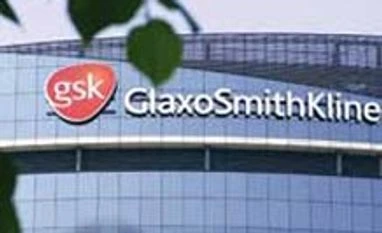GlaxoSmithKline will stop paying doctors to promote its products at events and remove individual sales targets for its marketing staff in a first for the drugs industry looking to recover from scandals over improper sales practices.
It also said on Tuesday it would stop payments to health care professionals for attending medical conferences.
The initiative represents a bid by Britain’s biggest drugmaker to get ahead of its critics by addressing potential conflicts of interest that could put commercial interests ahead of the best outcome for patients.
However, the company said the measures were not directly related to its Chinese problems and were rather part of a broad effort to improve transparency.
The entire drugs industry has been under fire for aggressive marketing tactics in recent years and the GSK action is likely to put pressure on other companies to consider similar steps.
In the United States, the industry’s biggest market by far, many companies have run into conflicts over improper sales tactics and GSK reached a record $3-billion settlement with the US government last year over charges that it provided misleading information on certain drugs.
A number of other firms have taken some steps to clean up their marketing practices. AstraZeneca said in 2011 it was scrapping payments for doctors to attend international congresses but others, until now, have not followed suit and GSK’s actions go further.
“We recognise that we have an important role to play in providing doctors with information about our medicines, but this must be done clearly, transparently and without any perception of conflict of interest,” CEO Andrew Witty said in a statement.
The decision to stop payments to doctors for speaking about medicines during meetings with other prescribers marks a big shift for a global industry that has always relied heavily on the influence of experts in promoting products.
GSK said it aimed to implement this move and a related measure to end paying for doctors to attend medical conferences by the start of 2016.
The change in payments to its sales representatives will be implemented faster, following a successful test-run in the United States, where payments have been decoupled from the number of prescriptions generated since 2011.
The policy of ending individual sales targets will now be rolled out globally. GSK said it planned to implement the new compensation system in all countries by early 2015.
GSK will still pay fees to doctors carrying out company-sponsored clinical research, advisory activities and market research, which it said were essential in providing insights on specific diseases.
It also said on Tuesday it would stop payments to health care professionals for attending medical conferences.
The initiative represents a bid by Britain’s biggest drugmaker to get ahead of its critics by addressing potential conflicts of interest that could put commercial interests ahead of the best outcome for patients.
More From This Section
It comes amid a major bribery investigation in China, where police have accused GlaxoSmithKline (GSK) of funnelling up to 3 billion yuan ($494 million) to travel agencies to facilitate bribes to boost its drug sales.
However, the company said the measures were not directly related to its Chinese problems and were rather part of a broad effort to improve transparency.
The entire drugs industry has been under fire for aggressive marketing tactics in recent years and the GSK action is likely to put pressure on other companies to consider similar steps.
In the United States, the industry’s biggest market by far, many companies have run into conflicts over improper sales tactics and GSK reached a record $3-billion settlement with the US government last year over charges that it provided misleading information on certain drugs.
A number of other firms have taken some steps to clean up their marketing practices. AstraZeneca said in 2011 it was scrapping payments for doctors to attend international congresses but others, until now, have not followed suit and GSK’s actions go further.
“We recognise that we have an important role to play in providing doctors with information about our medicines, but this must be done clearly, transparently and without any perception of conflict of interest,” CEO Andrew Witty said in a statement.
The decision to stop payments to doctors for speaking about medicines during meetings with other prescribers marks a big shift for a global industry that has always relied heavily on the influence of experts in promoting products.
GSK said it aimed to implement this move and a related measure to end paying for doctors to attend medical conferences by the start of 2016.
The change in payments to its sales representatives will be implemented faster, following a successful test-run in the United States, where payments have been decoupled from the number of prescriptions generated since 2011.
The policy of ending individual sales targets will now be rolled out globally. GSK said it planned to implement the new compensation system in all countries by early 2015.
GSK will still pay fees to doctors carrying out company-sponsored clinical research, advisory activities and market research, which it said were essential in providing insights on specific diseases.
)